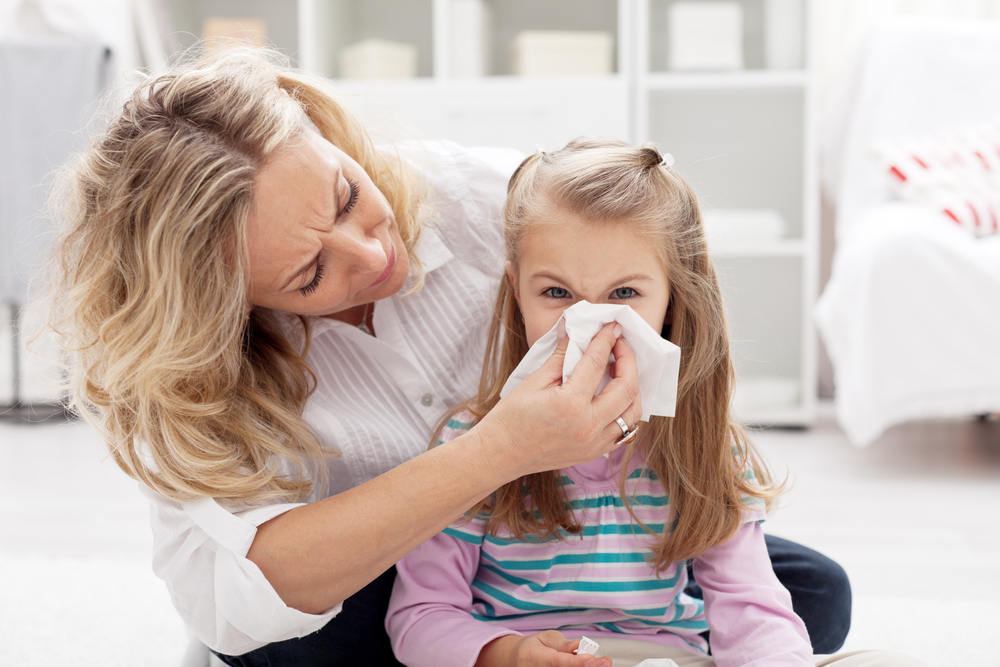Winter has arrived, and with it comes cold and flu season. You do your best to keep yourself and your family healthy, but despite your best efforts, you may still find yourself ill.
Common Winter Illnesses
It’s important to keep well during the holidays, particularly if you are at risk (very young, very old or with a compromised immune system). Here are some common ailments people fall prey to at this time of year, and how to tell their symptoms apart:
- Common Cold
- Flu
- RSV/Bronchiolitis
- Strep Throat
- Norovirus
1) Common Cold
The cold is a viral infection marked by nasal congestion, sore throat, cough, headache and sometimes a low-grade fever. Colds are caused by several different types of virus and can occur anytime during the year, although they occur most frequently in the winter months. Most colds peak around day 3-5 but begin to improve with complete resolution of symptoms in about a week.
Pro Tip: Avoid the common cold by washing your hands consistently throughout the day.
2) Flu
The flu may initially be mistaken for a common cold, but it usually comes on quickly with high fever, cough, sore throat, headache, and body aches and pains. The fever may last up to 5 days. The best way to avoid this illness in yourself and your family is to make sure everyone gets their annual flu vaccination.
3) RSV/Bronchiolitis
Bronchiolitis is a common viral respiratory infection. Symptoms include nasal congestion, cough, low-grade fevers, and wheezing. RSV, a particular virus that is often the cause of bronchiolitis, although many different viruses can cause bronchiolitis. It too can resemble a common cold before it progresses into a more serious illness with wheezing, difficulty breathing, and dehydration.
4) Strep Throat
Strep is most often seen in school-aged children. Strep presents as a sore throat, headache, and stomachache. Some people will experience a high fever or vomiting. Strep throat does not usually cause cold symptoms or coughing and it can usually be easily treated with antibiotics.
5) Norovirus
Also known as the winter vomiting bug, norovirus is an extremely infectious stomach bug. It can strike throughout the year but is more common in the winter. The illness is unpleasant, but it’s usually over within a few days. If you are ill with vomiting and diarrhea, it’s important to drink plenty of fluids to prevent dehydration.
Practice Prevention
No matter the time of year, it’s important to practice good hygiene, such as hand washing, coughing into a tissue, and avoiding contact with other people when you are contagious. If you find yourself sick during the winter months, your immune system will often handle it without any intervention. However, if you aren’t getting better or are getting worse, it may be time to see a doctor.
Contact Us to make an appointment with a family doctor, or to schedule a time to get your flu shot.




